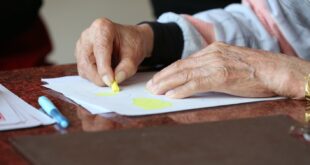Medication is designed to fight illnesses, improve quality of life, and in some cases, maintain life. It is wonderful stuff, but if it is not taken as directed, or combined with certain other foods, herbal preparations or alcohol, the result can be severe illness or death.
Here are some reminders of how to get the best out of your medicine.
What is medication?
Medicines include prescription and over-the-counter (OTC) drugs as well as herbal and dietary supplements. Some herbal and dietary supplements (or vitamins) can interact with both prescription and OTC drugs and cause potentially serious side effects. Always tell your doctor or pharmacist about any supplements you are taking, and about recreational drugs you may be using. Medical professionals need all the facts when they prescribe medication, so if in doubt, let them know.
Food and drug interactions
Some foods and beverages may increase or decrease a drug’s effect. For example, calcium-rich products such as milk and cheese can reduce the effectiveness of antibiotics. Grapefruit juice shouldn't be consumed if you're taking some drugs.
Always take the entire course of medication. Even if you feel fine, your doctor will have prescribed the dose carefully.
Trouble swallowing pills or capsules
If you are unable to swallow pills or capsules easily, ask for an alternative. Many medications are available in liquid, sprinkle or chewable forms as well as in tablets. Some pills can be dissolved in specific liquids. However, dissolving, cutting or crushing pills to swallow them might change how the pill works and could render it less effective. Ask your pharmacist.
How to store medicines
Store your medications in a medicine cabinet out of reach of children. This includes vitamins and herbal preparations.
It is best to keep medications outside the bathroom, as steam from showers and baths may affect the effectiveness of some drugs. If your pills are moist and powdery, that's an indication they've been affected by humidity and/or changing temperatures. Ask your pharmacist.
Medication for children
A child's weight is the best way for a pharmacist to determine the appropriate dosage for over the counter drugs. Parents should keep accurate track of their children's weight and read all the information of the package inserts, which are supplied with most medications.
Ask questions
It is a good idea to ask what the active ingredients are in your medications. As we age, we can react to things differently. This is especially true if people have cardiac, psychiatric, respiratory or gastrointestinal disorders.
It also helps to know in case you need to take over the counter medication that may contain the same ingredients and potentially cause an overdose
Should you use pill organisers?
Pill timers, organisers, pillboxes and specialised pill packaging (available from pharmacies) can help people better manage their medications. Pharmacists are best qualified to advise which medications are stored in pill organisers.
For some medicines, the original sealed foil or blister packaging is there to protect the medicine from the atmosphere and moisture – without the protective packaging the medicine can quickly be damaged and lose its effectiveness.








joeAnne - 16 years ago
The thing is that a lot of people do not take correctly their pills because they want to, not because it was a coincidence. So, this way they end up in a Drug Rehab Center.